OCD Treatment
We offer obsessive compulsive treatment in Cincinnati and Indianapolis.
We Can Help You With OCD and Related Disorders
Obsessive-Compulsive Disorder and related disorders are characterized by the presence of obsessions and/or compulsions. Obsessions are recurrent and persistent thoughts, urges, or images, which are experienced as intrusive and unwanted. Compulsions are repetitive behaviors or mental acts that an individual feels driven to perform in response to an obsession. Although individuals with OCD experience heightened anxiety, OCD has different features and treatment recommendations than general anxiety treatment. If you experience obsessions or compulsions, you should be evaluated for OCD. This guide explains obsessive-compulsive and related disorders and the treatments that can help you thrive.
OCD & Related Disorders
OCD
- Recurrent and persistent obsessions and/or compulsions that typically cause feelings of distress and anxiety
- Obsessions and compulsions are time-consuming and get in the way of life
Body Dysmorphic
- Perceived flaws in physical appearance that are not observable (or appear only slight) to others
- Repetitive behaviors may include mirror checking or excessive reassurance seeking and mental acts such as comparison
Hoarding
- Persistent difficulty
discarding or parting
with possessions,
regardless of their
actual value - Differs from normal
collecting, as the
accumulation
congests or clutters
living areas and can
exceed available space
Trichotillomania
(Hair Pulling)
- Recurrent pulling out
of one’s hair, resulting
in hair loss - Repeated attempts to
decrease or stop hair
pulling - May be preceded by
anxiety or boredom
Excoriation
(Skin Picking)
- Recurrent picking of one’s skin, resulting in skin lesions
- Repeated attempts to decrease or stop skin picking
- May be preceded by anxiety or boredom
Body-Focused Repetitive Behavior
- Recurrent body- focused repetitive behaviors such as nail or lip biting, cheek chewing, etc.
- Repeated attempts are made to decrease or stop the behaviors
Effective Treatments for OCD & Related Disorders
Exposure and Response Prevention
- Learn how OCD causes extreme doubt and thinking errors
- Learn how performing compulsions (behaviors or mental
acts) maintains and escalates obsessions and anxious
distress - Get support to face fears and reduce compulsions as the
means of anxiety reduction - Practice new ways of responding to obsessions
Cognitive Behavioral Therapy
- Identify and challenge unhelpful thoughts, commonly
addressing unhelpful beliefs and misappraisals - Learn new skills to change your anxious and avoidant
behaviors - Get support and practice facing feared situations to learn
new ways of coping
Acceptance and Commitment Therapy
- Learn to let go of the struggle against unwanted thoughts,
emotions, and physical sensations to embrace acceptance - Learn to focus on the present moment and act on what
you value most
Habit Reversal Training
- Use awareness training to identify the circumstances
during which body-focused behaviors are likely to occur - Learn to substitute another response for the behavior using
competing response training
Take the Next Step with Support for OCD

We want to help you create an individualized roadmap (a ThriveMap!) to get CLEAR DIRECTION on how you can achieve your goals and overcome your challenges.
1
Understand the Problem
2
Choose Treatment Targets
3
Create an
Action Plan
Frequently Asked Questions About OCD Treatment
What is it like to work with our OCD therapists in the Indianapolis and Cincinnati areas?
We believe the connection with your therapist and having clear guidance about the treatment and therapeutic process are critical for a great therapy experience, that’s why we promise our clients Remarkable Connection and Clear Direction. Your unique needs and expectations matter to us as we work together to help you accomplish your goals. Here’s a snapshot of the ThrivePointe experience.

1. Build a Strong Therapeutic Relationship
Team up with a therapist who strives to deeply understand your experience and expertly guide you through the process of making changes.

2. Understand the Problem
Develop a clear picture of your problem, including your personal history, symptoms, triggers, and the ways your life is impacted.

3. Create an Action Plan
Using evidence-based approaches, design an individualized plan to achieve your goals.

4. Implement New Skills & Solutions
Get the right balance of support and challenge to make life and relationship changes.

5. Track Your Progress To Do What Works
Make sure therapy is helping by monitoring improvements and refining your action plan.

6. Achieve Your Goals
Experience the Satisfaction of working hard to see positive changes and growth in your life!
Rebecca has advanced training in treatments for OCD. She will work with you to evaluate the symptoms causing distress and teach you about what differentiates OCD from other anxiety disorders. You will identify the obsessions and compulsions keeping you stuck in the cycle of OCD. You might find yourself experiencing frequent intrusive thoughts about contamination, causing harm to others, getting things just right, or many other themes. You will have support to learn that these thoughts don’t hold any special significance, they are unwanted, intrusive, and your brain fires them off without your consent! You will also explore the compulsions you’ve been using to manage the distress of these unwanted thoughts. Compulsions can be checking, reassurance seeking, counting, avoiding people or situations, or other mental rituals. They can help with very temporary relief from distress, but they “feed the OCD” and reinforce the anxiety, obsessions, and compulsions causing distress. You can also get support to process and find new ways of working through interpersonal problems that may be exacerbated when important people in your life don’t understand OCD. You can work together to build readiness and confidence to try new ways of coping with OCD and communicating with others about your needs. Rebecca also integrates self-compassion work into the process to help you become more resilient to set backs and unhelpful ideas about what you “should” be able to do. You can make progress with support to improve your internal experience, capacity to reach for your life goals, and experience supportive connection with the people most important to you.
What does ERP therapy for OCD look like?
Exposure and Response Prevention is the gold-standard of treatment for OCD and can help with long-term relief.
Here’s the big picture process:
With OCD and anxiety, the amygdala part of the brain can fire off for things that don’t deserve the signal. Engaging in compulsions reinforces this over-firing and engaging in logic doesn’t help the anxiety which can keep you in an endless loop of reassurance or figuring it out.
- Complete an evaluation, gathering information about your history, symptoms, and hopes for treatment.
- Learn about OCD and the neurobiology of anxiety.
- Learn about ERP and how to build resilience through facing challenges.
- Discuss any vulnerabilities that may increase the likelihood of unwanted emotion (such as anxiety).
- Build skills for managing vulnerabilities (such as mindfulness and other DBT skills) to build resources for exposure interventions.
ERP helps you train your amygdala to only fire off when necessary through exposure interventions. With exposure, you teach the brain that you can handle discomfort long enough to see that it doesn’t have to be uncomfortable. You will gradually build up your ability to challenge how you respond to distress, reducing your reliance on compulsions to cope.
- Work with your therapist to create an exposure hierarchy.
- Decide on exposure interventions to help you get to the heart of the fear you’re experiencing.
- Interoceptive Exposures (physical sensations)
- Imaginal Exposures (imagined situations)
- In-vivo Exposures (actual situations or lived experiences)
- Create exposure scripts and determine the most effective way for you to engage in exposure work in and out of sessions.
Over time, this means that you’ll be able to do the same things that triggered anxiety, but feel less uncomfortable because your brain learned it can tolerate it!
Want to Learn More About OCD Treatment
in Ohio or Indiana?
We want to make finding OCD treatment in Cincinnati and Indianapolis easy.
To get started with obsessive compulsive treatment, just follow these three steps:
- Find a therapist on our Team page.
- Call 833-914-4688 to make an appointment.
- Start making progress on your goals!
More ThrivePointe Counseling Services Near Cincinnati and Indianapolis
As a practice, we value treating the whole family’s needs. So, at our various ThrivePointe locations in Indianapolis, Greenwood, Blue Ash and Liberty Township, we can serve you. We provide adult counseling, couples counseling, child counseling and play therapy, teen counseling, family counseling and Christian counseling. Our team cares about you and wants to be a part of your thriving life. Learn more and call us today!

